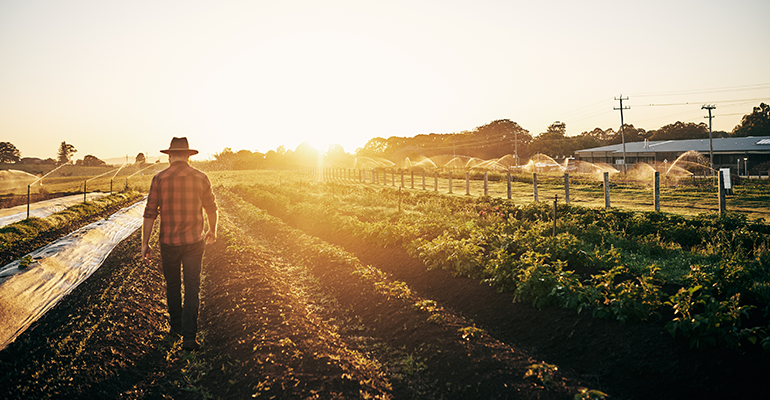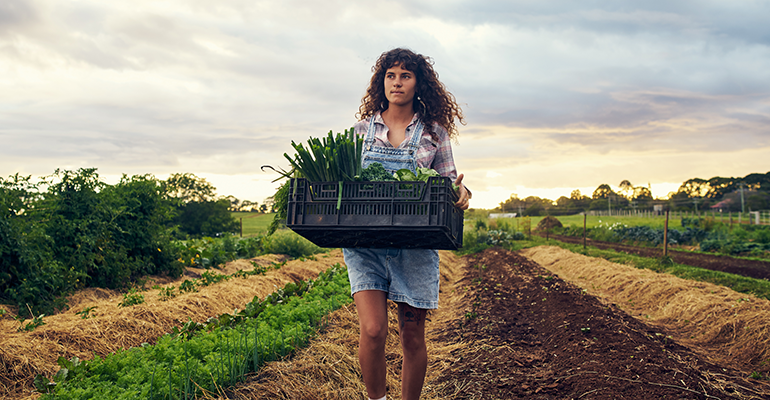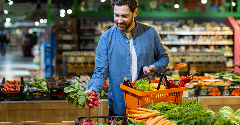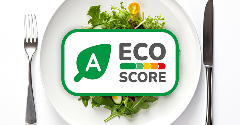News
Brands' critical role in ensuring farmers receive fairer agreements
29 Nov 2023
Food brands, manufacturers, and consumers can play a significant role in helping farmers get a more equitable share of and say in agri-food supply chains, according to Fairtrade.
Fairtrade's latest campaign reasserts the efforts required to ensure farmers get fair and equitable deals, and the central part food brands play.
In a first for the global organisation, Fairtrade America and Fairtrade Canada have teamed up on their latest initiative, ‘We Are Fairtrade’, to highlight the part food brands, manufacturers and consumers play in helping farmers get a more equitable share of, and say in, the cocoa industry.

The ‘We Are Fairtrade’ campaign was designed to creatively close the gap between farmers and consumers. By showcasing public art created in collaboration with local artists, the organisation has sought to bring the stories of 12 Fairtrade farmers to retailers in 12 cities across the US.
“For many farmers, the impact might be felt through the Fairtrade Minimum Price and Premium structure that provides stability and flexible dollars to invest in a fluctuating market,” Amanda Archila, executive director of Fairtrade America, told Ingredients Network. “For others, that might be visible in how we encourage gender equality or support farming organisations in adapting to climate change,” Archila added.
Achieving equality and trade justice
“We need to drive towards an alternative vision of global trade that honours the farmers and farm workers that are playing a critical role in our food supply chain and should be recognised for their labour accordingly,” says Archila.
Stable pricing, mutually beneficial relationships, and decision-making capabilities are all primary changes that need to be made to help achieve equity and justice for farmers, Fairtrade says. In addition, prioritisation by government and businesses to help navigate highly volatile areas of the sector, such as inflation and climate change, is critical, too. As are third-party verifications that strive to move the food and agriculture industries forward and support companies align with industry best practices.
 © iStock/pixdeluxe
© iStock/pixdeluxe
“The inherent risk and burden of farming needs to be distributed across the supply chain rather than resting primarily with farmers,” Archila adds.
Fighting against old and new barriers to change
“The issues we are trying to address through Fairtrade—namely exploitation in the agricultural sector in low- and middle-income countries—have been going on for centuries,” Archila says.
Part of its message is that no one entity can do it alone. Overcoming this exploitation requires global collaboration. “Untangling and addressing the entrenched social justice issues and cultural norms that got us to this place inherently takes time and cross-sector mobilisation,” Archila adds.
Climate change, inflation, and the aftermath of the global pandemic are additional, compounding issues that exacerbate these long-standing structural problems. “Making communities already living on thin margins even more unstable,” says Archila.
One 2020 study showed that up to 132 million people will be pushed into poverty because of climate change by 2030. If its urgency was unclear before, research and insights such as these make its pursuance even more evident. “What brings me hope is that the mindset and knowledge of consumers in countries like the US is shifting, and brands are stepping up to meet the demand and this changing idea of corporate responsibility.”
Fairtrade’s recent 2023 Fairtrade America Consumer Insights report, conducted by independent insights consultancy GlobeScan, found that despite increases in the cost of living in the US, 4 in 5 consumers who know Fairtrade are willing to pay more for a product to ensure producers are paid a fairer price. “Consumers are ready to step up with companies in changing the norm,” says Archila.
Manufacturers’ role in generating a fairer deal for farmers
“Brands play a critical role in making sure that farmers are getting a fairer deal for their products,” says Archila. Some of the key opportunities that the Fairtrade America leader sees revolve around paying fairer prices, sharing the burden of global challenges, engaging in collective continuous improvement that includes farmers partnering with external experts, and third-party validation.
 © iStock/pixdeluxe
© iStock/pixdeluxe
“Paying a fairer price needs to be baked into your profit and loss (P&L), not just tacked on as a charitable contribution or one-time initiative. Structural problems require structural change,” says Archila.
Farmers are also battling with the effects of global events like the war in Ukraine, changing harvest seasons, supply chain disruptions and the Covid-19 pandemic, which directly affects farming communities and their ability to work. These impact factors such as fertiliser costs, available labour force and crop yields.
Organisations worldwide are striving to create change by scrutinising their supply chains and operations and improving them piece by piece with farmers at the centre.
“We can’t all deeply understand the evolving nuances of each part of our supply chain and how they interact with changing human and environmental rights,” says Archila. “Collaborating with experts to bridge that gap and provide a critical lens is key to the evolution companies need to create change now and in the future,” Archila adds.
Related news

UK Government overhauls childhood obesity strategy
21 Nov 2025
The UK Government has announced a new package of measures designed to reverse the nation’s childhood obesity epidemic following the release of statistics revealing the scale of the crisis.
Read more
How younger consumers are redefining ingredient choices and rejecting brand loyalty
18 Nov 2025
Gen Z and millennial consumers’ preferences for transparency, functionality, and purpose are “redefining the very nature of consumption itself”, says SPINS.
Read more
New UPF standard hoped to offer consumers ‘coherence and clarity’
10 Nov 2025
Ingredients companies are being urged to enter “a new era of partnership and innovation” following the launch of the industry’s first non-UPF verification scheme.
Read more
Ingredient quantities mislabelled on popular protein bars, independent tests show
5 Nov 2025
Some popular protein bars contain more fat, carbs, and/or sugars than claimed on their labels, independent nutrition testing reveals.
Read more
Does promoting protein content push up plant-based sales?
27 Oct 2025
Promoting the protein content of meat-free products is a more effective sales strategy than adding carbon labels, a study of UK bakery chain Greggs suggests.
Read more
Supplement shoppers seek storytelling and science-backed suppliers
17 Oct 2025
Supplement consumers want specific health benefits that focus on prevention and personalisation, according to data from HealthFocus International.
Read more
Food fraud risks rise as brands fight economic and environmental headwinds
10 Oct 2025
Climate change, geopolitics, regulations, and demand for sustainable products are pushing up food fraud and adulteration risks, warns a world-leading food fraud expert.
Read more
The growing appeal of nutrient-dense food claims
2 Oct 2025
Nutrient-dense claims are rising as consumers reject the “empty calories” of UPFs in favour of products that provide meaningful nutrition with every calorie, Mintel data shows.
Read more
What does MAHA mean for the US nutraceutical industry?
30 Sep 2025
Industry associations have expressed mixed reactions to new policy directions on health and nutrition under the Make America Health Again (MAHA) banner.
Read more
Eco-Score labels improve consumer identification of sustainable foods
22 Sep 2025
The presence of a front-of-pack Eco-Score label improves consumers' accuracy in identifying sustainable food products from 52% to 72%, a study suggests.
Read more